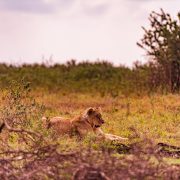
Travel Insurance For Trips To Kenya
Kenya has an abundance of natural beauty and resources that span from its coastline along the Indian Ocean to its savannahs and mountain highlands. The African nation is extremely popular for adventure tourism, mostly due to its abundance of wildlife and the available safaris within the Masai Mara Reserve and Amboseli National Park.
Whether you plan to embark on a magical safari, take part in other adventure activities, or visit family and friends, buying a travel insurance policy to safeguard your trip investment is a smart move. Without the best travel insurance for your needs, you can wind up losing the hard-earned money you’ve spent on your trip.
Trip Cancellation Insurance for Nixing Nairobi
Trips to Kenya can be expensive, not only because of the costs of international airfare but also due to costs associated with safaris. This is why it’s critical to have travel insurance in place well before you board your plane, says Daniel Durazo, spokesperson for Allianz Travel.
When you buy travel insurance right after you make your first trip deposits, you get the maximum length of coverage time for cancellations. There are other advantages to buying travel insurance early—you won’t miss out on optional upgrades that require purchase soon after your initial trip deposits.
Trip cancellation travel insurance can reimburse you for prepaid, nonrefundable travel expenses you paid for in advance when a trip is canceled for a reason listed in your policy.
If you get seriously injured right before your departure date for your safari, for example, you can file a trip cancellation claim to recoup your nonrefundable trip costs. That said, it’s important to understand that trip cancellation insurance doesn’t cover every situation that may cause you to cancel your trip. Durazo says travelers should read over their policies so they understand what is covered and not covered ahead of time.
“Many insurance products include a 15-day review period that allows you to review your policy and exchange it or cancel it if it doesn’t meet your needs,” he says.
“Cancel for Any Reason” Travel Insurance
Some travel insurance companies offer “cancel for any reason” travel insurance (CFAR) in addition to regular trip cancellation coverage. CFAR is usually offered as an add-on to a regular policy, and you generally must buy it within 14 days of paying your first trip deposit.
For trips to Kenya, in particular, it’s possible a change in the political climate or safety worries might give you pause before you travel.
Carol Mueller, spokesperson for Berkshire Hathaway Travel Protection, adds that travelers should always research travel safety ratings and information from travel.state.gov and “make a personal decision on travel safety before booking or venturing out to an unfamiliar foreign vacation.”
Travel Medical Insurance for Wildebeest Migration Mishaps
Travel medical insurance is crucial for international trips where your own health insurance may have little if no benefits if you become injured or sick, whether you’re visiting family in a rural village, heading to the capital city of Nairobi, or witnessing the wonders of the wildebeest migration. Travel medical insurance pays for ambulance services, doctor and hospital bills, medication, X-rays, lab work and other medical costs, up to your policy limits.
Without travel insurance for medical expenses, you’ll have to pay out-of-pocket for emergency medical care if your U.S. health plan doesn’t have coverage abroad.
The most generous travel insurance policies provide $500,000 in emergency medical expense coverage per person, but you can buy plans with lower amounts if you feel you don’t need that much.
Check for Adventure Activity Coverage
Travel medical coverage is also essential if you’re planning adventure activities during your travels, which is frequently the case during trips to Kenya. Many travel insurance companies exclude certain adventure sports and activities from coverage in standard policies, but you can find companies that sell add-on benefits to cover these activities.
World Nomads is one company that includes coverage for active sports that may not be covered under other travel insurance plans.
“If you’re headed out on safari, World Nomads covers more than 150 adventure activities including safari tours,” says Christina Tunnah, spokesperson for World Nomads. For example, she points out that the World Nomads Explorer plan has higher coverage limits and includes activities like hot air ballooning, which is popular in the Masai Mara.
Medical Evacuation Insurance for Kenya Trips
Emergency medical evacuation insurance is also crucial for trips to Kenya, says Megan Moncrief, spokesperson for Squaremouth, a travel insurance comparison provider. That’s because medical transfers via helicopter or plane can cost hundreds of thousands of dollars in remote areas.
If you get ill or injured during your trip and require care beyond what’s available locally, medical evacuation travel insurance pays for the cost to airlift you to the nearest adequate treatment center.
Moncrief recommends at least $250,000 in medical evacuation coverage for those visiting locations on safari due to the lack of medical facilities in these areas. You can find coverage of $1 million for emergency medical evacuation, per person, in some travel policies. Decent coverage of $250,000 is available in other plans.
Trip Interruption Travel Insurance
If you have to return home early from Kenya due to unforeseen events, trip interruption travel insurance can reimburse you for unused, prepaid, nonrefundable trip costs you paid for in advance.
For instance, if a family member back home is seriously injured in an accident, you can leave Kenya before your planned departure date and file a trip interruption insurance claim. Typical costs you can file a claim for include airfare, accommodations and excursions, for example, trip cancellation benefits can also pay for your last-minute flight home.
“Interruption for Any Reason” Travel Insurance
Some travel insurance companies offer “interruption for any reason” (IFAR) travel insurance as an upgrade to a base travel insurance policy.
IFAR lets you cut a trip short regardless of the reason and provides up to 75% reimbursement of forfeited, nonrefundable trip costs. You usually must be at least 48 hours or 72 hours into your trip to be eligible for IFAR benefits, depending on your policy.
You generally have 15 to 20 days from the time you book your trip to buy IFAR and it typically adds 3% to 10% to the cost of your travel insurance.
IFAR isn’t sold by all travel insurance companies, but it’s available on some travel insurance policies sold by Nationwide, Seven Corners, and WorldTrips.
Travel Delay Insurance for When Hakuna Matata Is On Hold
Even the best planned itineraries can be disrupted by weather, aircraft maintenance issues or even a traffic accident on your way to the airport. If you experience a hiccup in your travel plans due to a problem covered by your policy, travel delay insurance can reimburse you for reasonable expenses that pop up. For example, these can include meals and an overnight hotel stay while you wait for your flight to depart.
Travel delay benefits apply when your trip is delayed for a specific length of time listed in your policy, usually six, 12 or 24 hours. At that point, you can qualify for reimbursement, up to the travel delay limits listed in your policy.
Baggage Insurance for Big Five Gear When Your Stuff is M.I.A.
If you have an excursion planned to see lions, elephants, leopards, buffalo and rhinos, known as the “Big Five,” and your baggage is missing, you’ll need more than what you wore on the plane. Baggage insurance reimburses you for the depreciated value of your belongings if they are lost, damaged or stolen, up to your policy limits. That way you can get back some of the money you spent to buy new gear for your trip.
Baggage delay insurance provides compensation for expenses you pay when your luggage is delayed. If you need a change of clothes and toiletries to tide you over until your baggage shows up, you can make a baggage delay claim. Benefits for baggage delay kick in after a period of time specified in your policy, such as 12 hours.
How Much Is Travel Insurance for a Trip to Kenya?
The average cost of travel insurance for a trip to Kenya is $538, according to Squaremouth. This is for an average trip length to Kenya of 17 days with an average insured trip cost of $8,878.
Exactly how much you pay for travel insurance will depend on several factors, including your age, trip cost and the travel insurance plan (and upgrades) you choose.
The average cost of travel insurance is 5% to 6% of your trip cost, according to Forbes Advisor’s analysis.
Safety Issues and Civil Unrest
Tunnah, of World Nomads, warns that crime can be an issue in Kenya, especially in the larger cities like Nairobi, in coastal beach resorts and in other tourist areas.
“For extra safety, especially if traveling solo, only take licensed and regulated taxis called by you or your hotel,” says Tunnah. “Always be aware of your surroundings, don’t walk alone at night, and keep an eye on your belongings to minimize risk.”
Political protests and clashes between demonstrators and law enforcement can also be a concern if you’re traveling to Kenya. If you’re worried about the potential for riots and civil unrest, you can look for travel insurance companies that offer coverage for security-related evacuations, cancellations and interruptions.
For example, the TravelGuard Deluxe plan from AIG travel insurance includes security evacuation coverage up to $100,000 for problems such as political events and natural disasters at your destination. It also covers trip cancellation, trip interruption and trip delay due to civil disorder. AIG also sells this coverage as an optional upgrade for its TravelGuard Preferred plan.



